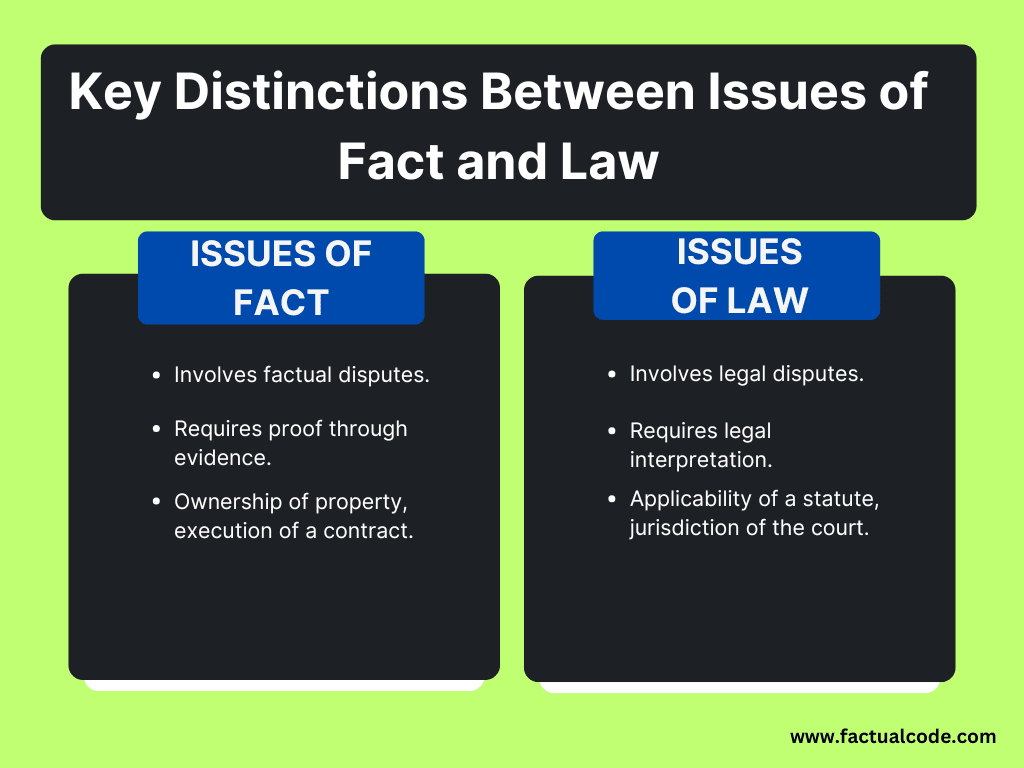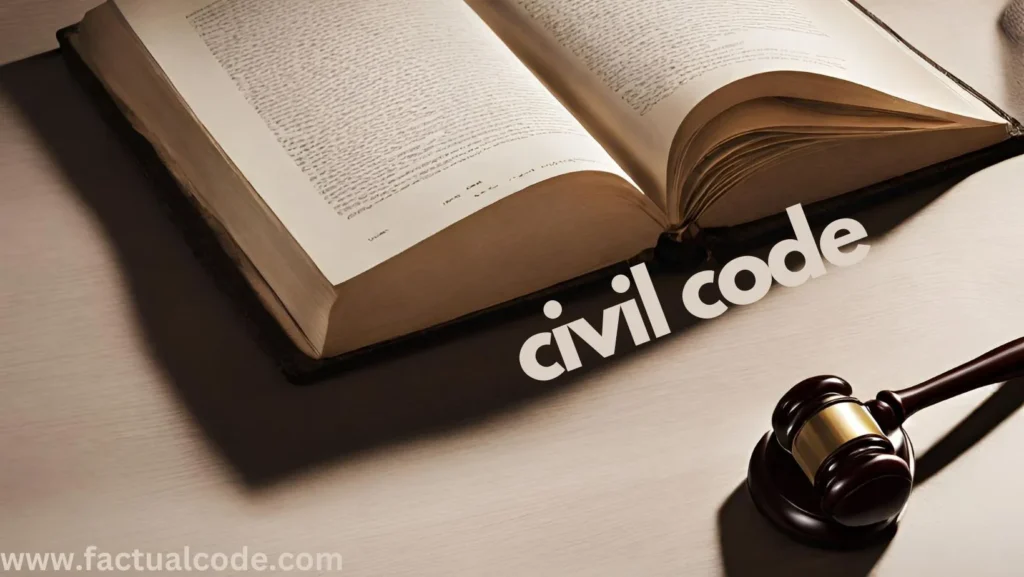Under the Code of Civil Procedure, 1908 (CPC), issues represent the disputed points of fact or law between the parties in a suit. Framing these issues is a crucial step in narrowing down the scope of the trial to contentious matters requiring judicial determination.
Types of Issues
1. Issues of Fact
- Definition: These involve disputes over factual matters.
- Requirement: Evidence (oral, documentary, or expert opinion) is needed to establish the truth.
- Example: Whether the defendant borrowed money from the plaintiff.
2. Issues of Law
- Definition: These relate to disputes regarding the interpretation, applicability, or validity of legal principles or statutes.
- Requirement: Resolved by the judge through legal analysis and arguments.
- Example: Whether the suit is barred by the law of limitation.
Relevant Provisions in CPC
Order XIV Rule 1:
- Specifies the types of issues: fact and law.
- Issues arise when a material proposition of fact or law is affirmed by one party and denied by the other.
Order XIV Rule 2:
- The court must pronounce judgment on all issues.
- Preliminary issues (e.g., jurisdiction or legal bar to the suit) can be tried first.
Significance of Proper Framing of Issues
- Focus: Concentrates the trial on the real points of contention.
- Efficiency: Avoids irrelevant matters and streamlines proceedings.
- Clarity: Provides a clear framework for the court and parties to address disputes.
Case Law References
1. Major S.S. Khanna v. Brig. F.J. Dillon, AIR 1964 SC 497:
It establishes that separating issues of law from issues of fact is permissible only when doing so contributes to judicial economy without compromising procedural justice.
2. Makhan Lal Bangal v. Manas Bhunia (2001):
Held that improper framing of issues could result in miscarriage of justice.


